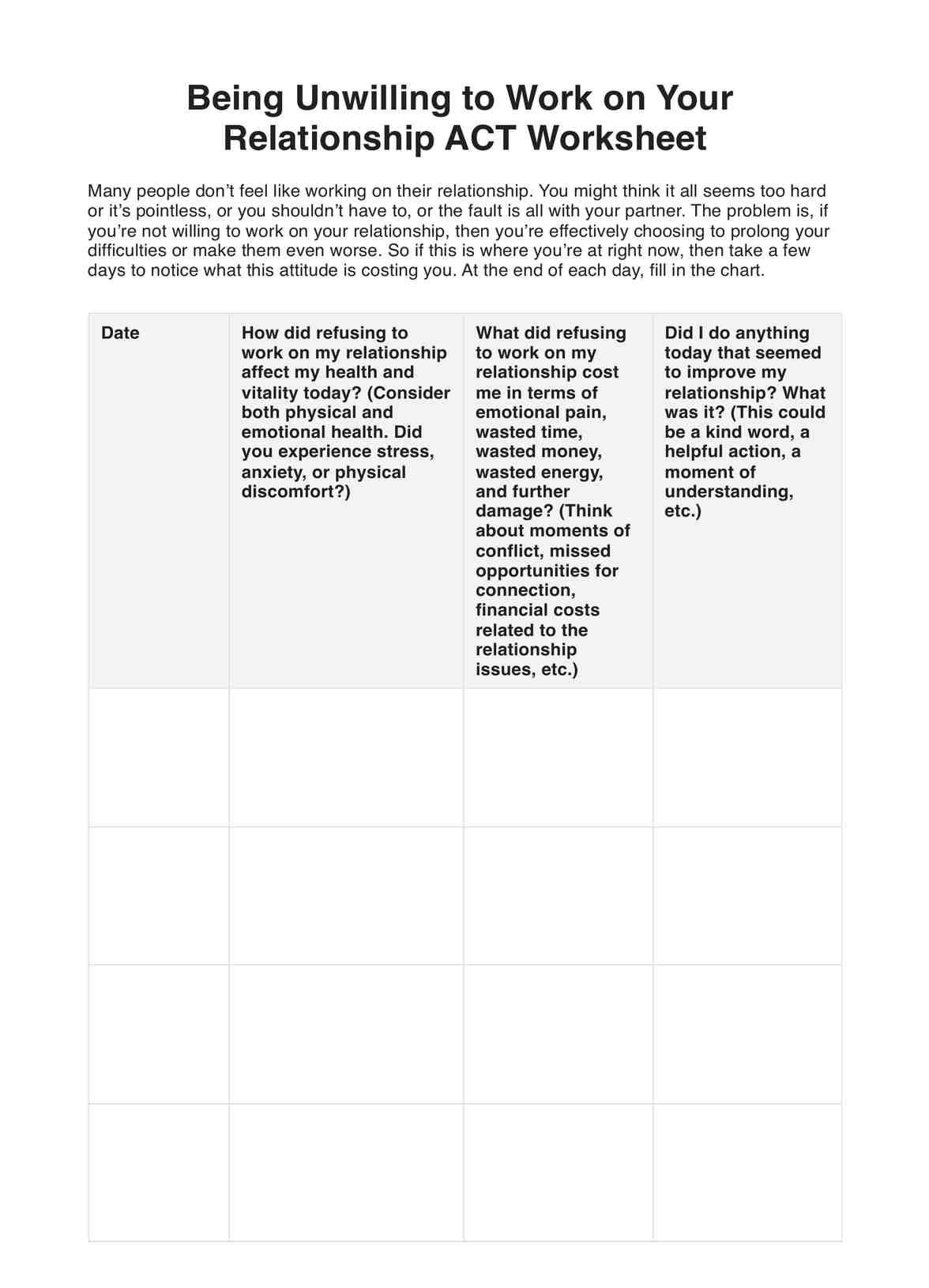It varies depending on the individual, but typically it can take anywhere from 30 minutes to an hour.

Being Unwilling to Work on Your Relationship ACT Worksheet
Improve your relationships with the Being Unwilling to Work on Your Relationship ACT Worksheet. Identify issues, examine thoughts, and commit to change today!
Use Template
Being Unwilling to Work on Your Relationship ACT Worksheet Template
Commonly asked questions
The worksheet can help people identify and understand their attitudes and behaviors that may contribute to relationship problems. It can also assist in improving communication and enhancing relationship satisfaction.
The worksheet is most effectively used when an individual recognizes patterns of unwillingness or avoidance in their relationship.
EHR and practice management software
Get started for free
*No credit card required
Free
$0/usd
Unlimited clients
Telehealth
1GB of storage
Client portal text
Automated billing and online payments











